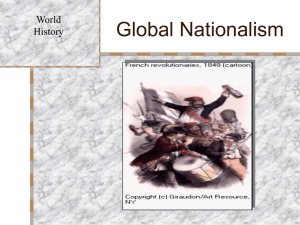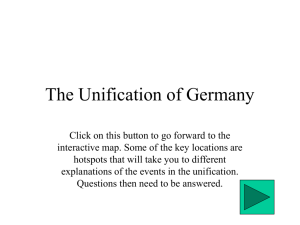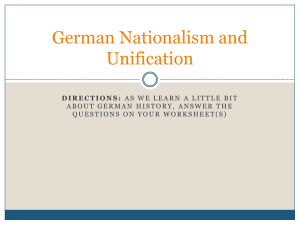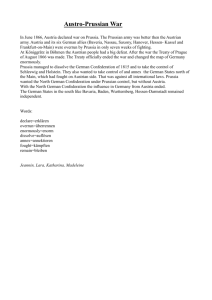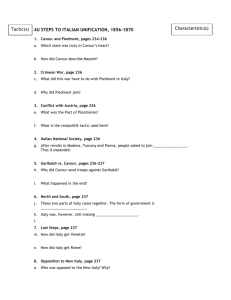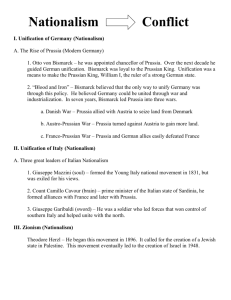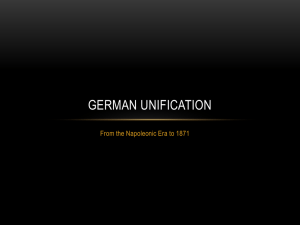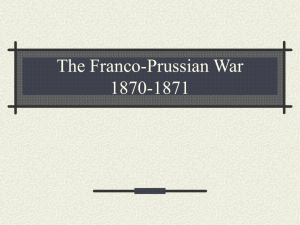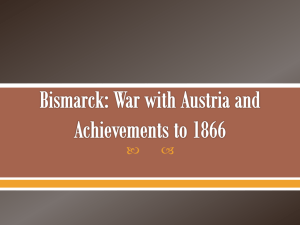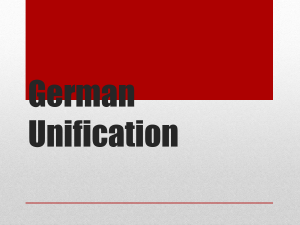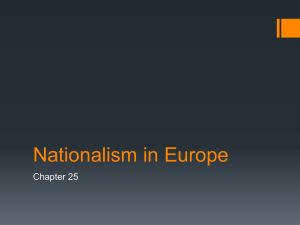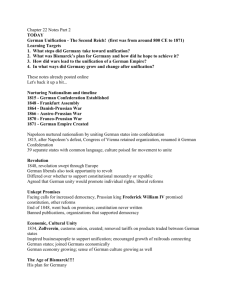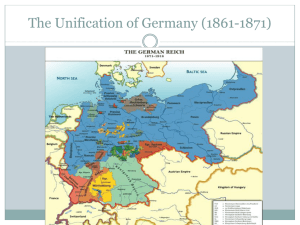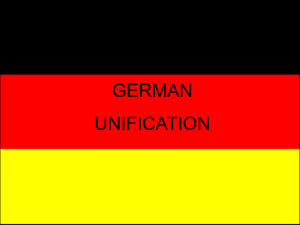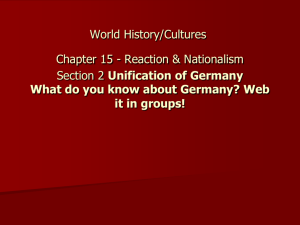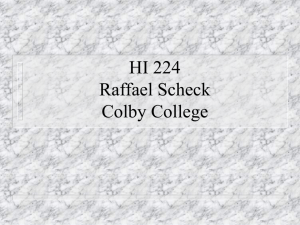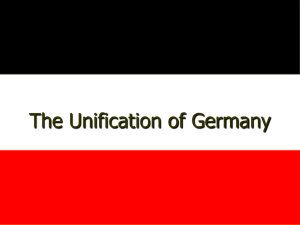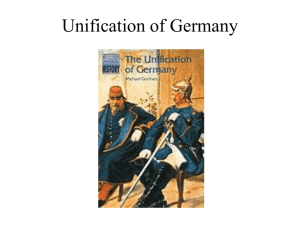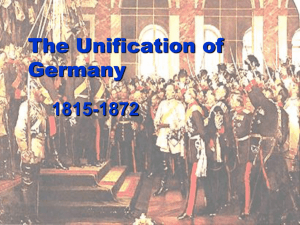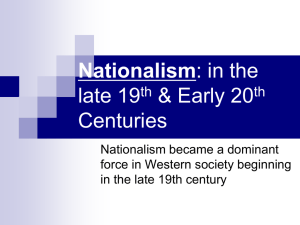Unification of Germany
advertisement
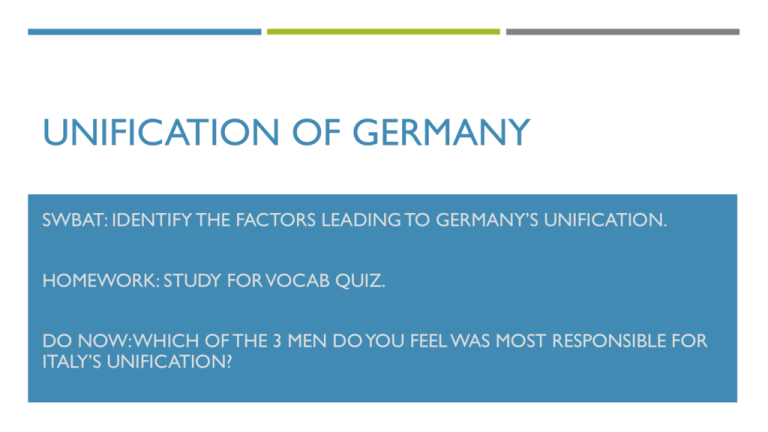
UNIFICATION OF GERMANY SWBAT: IDENTIFY THE FACTORS LEADING TO GERMANY’S UNIFICATION. HOMEWORK: STUDY FOR VOCAB QUIZ. DO NOW: WHICH OF THE 3 MEN DO YOU FEEL WAS MOST RESPONSIBLE FOR ITALY’S UNIFICATION? GERMANY UNDER NAPOLEON Napoleon had abolished the Holy Roman Empire and reorganized many German states into the Confederation of the Rhine. Prussia and Austria were the leading Germany states, but Austria held many non-German lands and peoples. Prussia wanted unity, but Austria did not, because it could not bring its non-German territories into Germany. In 1815 the Congress of Vienna, created the German Confederation. This was fragmented, like Italy, put gave the area of Prussia more land and more power than Austria. ECONOMIC STEPS TOWARDS UNIFICATION Tariffs placed on German states made trade between states costly forcing up the price of goods. A class of aristocratic landowners called Junkers complained that tariffs were hurting sales of farm products. In 1818, they convinced the Prussian king to abolish tariffs within his territories. Resulted in the customs union called the Zollverein. By 1854, this included most of the German states, but not Austria. Made prices lower and more uniform. The German economy moved towards unification. THE RISE OF BISMARCK In 1861,William I became king of Prussia and the next year he appointed Otto von Bismarck to head the Prussian cabinet. Bismarck opposed democracy and the idea of a parliament. Bismarck also had a bad habit of ignoring the constitution. Under Bismarck, however, the army was transformed into an efficient, powerful war machine. The army would be used to bring Germany together in a series of wars. THE WARS Bismarck was a very shrewd militarist and used strategically planned wars to help bring the German states together. In chronological order: Danish War: the Danes attempted to claim German-speaking areas into Denmark causing an uproar from Germans who demanded they be absorbed into a German nation. Seven Weeks War: disagreements between Prussia and Austria over those same 2 German-speaking areas. Prussia becomes the stronger of the 2. Franco Prussian War: France loses and convinces non-Prussians that consolidation is desirable. With each war, the cries for a unified state grew louder. GERMAN UNIFICATION IS OFFICIAL In Jan., 1871 representatives of the allied German states met at Versailles where they declared the formation of the German Empire, including all the German states except Austria. Made the Prussian capital of Berlin the capital of the empire. King William I was proclaimed emperor, or Kaiser of the empire and Bismarck named chancellor (prime minister). The Kaiser had a lot of power: Could appoint the chancellor, declare a defensive war on his own, or a offensive war with legislative approval. THE CONSTITUTION Although Bismarck didn’t normally abide constitutions, he accepted the one set down at Versailles. It united all 25 German states. Each state had its own ruler and would handle issues such as education, law enforcement, and taxation. Also created a 2 house legislature: Upper house: Bundesrat made up of 58 appointed members. Lower house: Reichstag made up of 400 elected officials. This new system heavily favored Prussia. Had the most members in the Bundesrat since they were appointed by Prussia’s state gov’t. As the most populous state, it also had the most members in the Reichstag. EXIT QUESTION How do you think Cavour would feel about Bismarck’s methods? Explain.

